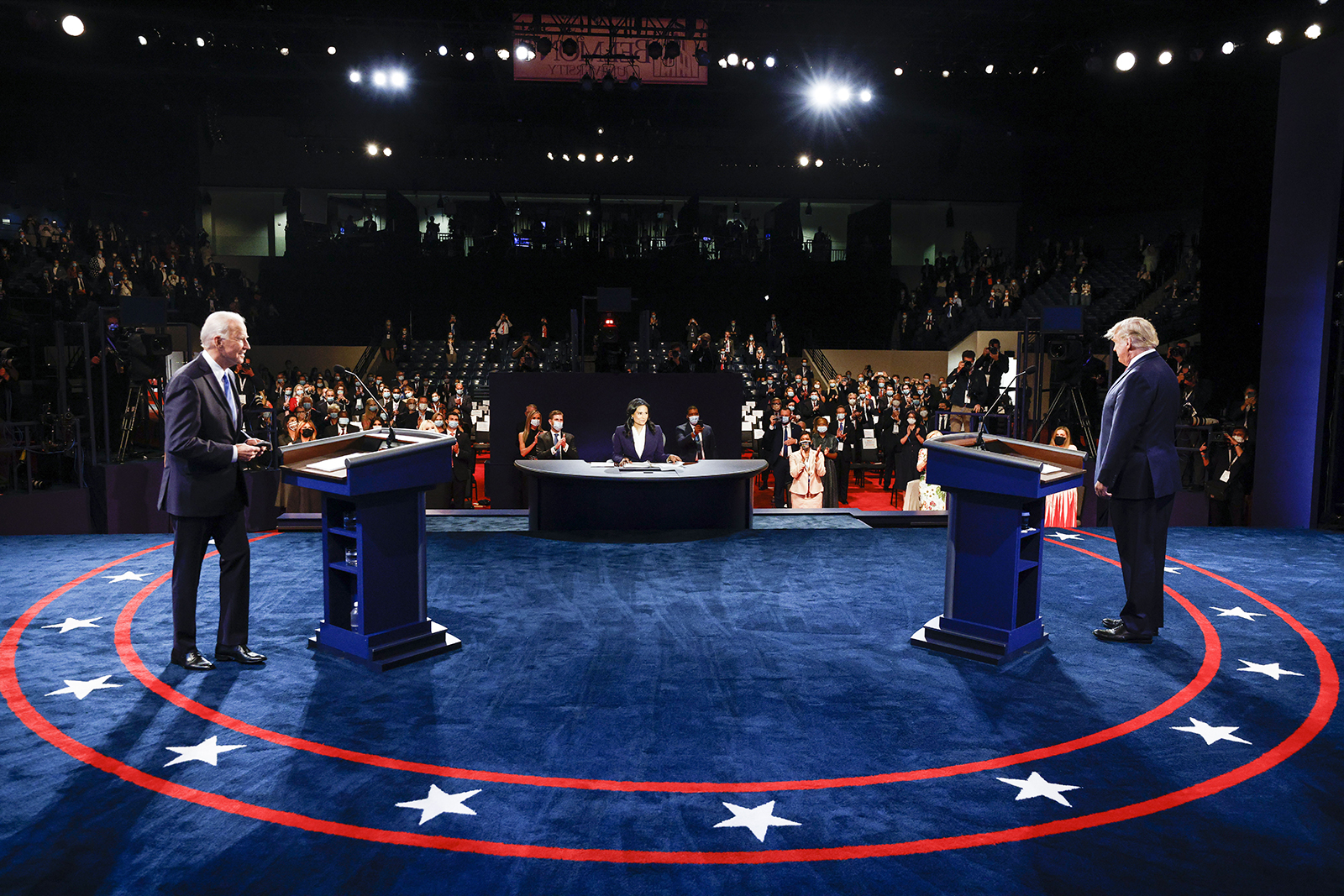Policy and Argumentation: Whos Winning In The Presidential Debate

The presidential debate offered a platform for the candidates to present their policy positions and engage in a spirited exchange of ideas. While the debate covered a broad range of issues, certain key policy areas emerged as focal points, highlighting the candidates’ contrasting approaches and the concerns of the electorate.
This section will analyze the key policy issues and arguments raised by each candidate during the debate, assessing the effectiveness of their arguments and their ability to resonate with the audience. It will also explore the potential impact of the debate on the candidates’ policy positions and campaign strategies.
Economic Policies
The candidates’ economic policies were a central theme of the debate, reflecting the deep divisions in the electorate over issues such as taxation, government spending, and healthcare.
Candidate A emphasized the importance of tax cuts for businesses and individuals, arguing that this would stimulate economic growth and create jobs. They also advocated for deregulation, claiming that it would unleash the power of the free market.
Candidate B, on the other hand, focused on increasing government spending on infrastructure and education, arguing that this would create jobs and boost the economy in the long term. They also proposed raising taxes on corporations and high-income earners, arguing that it would ensure fairness and generate revenue for essential programs.
The effectiveness of the candidates’ arguments on economic policies will likely depend on the audience’s economic outlook and their views on the role of government. For example, voters who are concerned about job security and economic inequality may be more receptive to Candidate B’s proposals, while those who believe in lower taxes and limited government intervention may favor Candidate A’s approach.
Healthcare, Whos winning in the presidential debate
Healthcare emerged as a major point of contention in the debate, with the candidates presenting starkly different visions for the future of the healthcare system.
Candidate A advocated for a market-based approach to healthcare, emphasizing the importance of individual choice and competition among providers. They proposed repealing the Affordable Care Act (ACA) and replacing it with a system that would allow individuals to purchase health insurance across state lines.
Candidate B, on the other hand, defended the ACA and argued for expanding its coverage and affordability. They proposed increasing government subsidies to help individuals afford health insurance and strengthening the role of Medicare in providing healthcare for seniors and people with disabilities.
The debate over healthcare is likely to continue throughout the campaign, as the issue is deeply personal for many voters. The candidates’ arguments will likely be scrutinized by healthcare experts and advocacy groups, and the debate will likely shape the candidates’ campaign strategies moving forward.
Climate Change
Climate change was another prominent issue in the debate, with the candidates expressing differing views on the urgency of addressing the issue and the role of government in mitigating its effects.
Candidate A acknowledged the reality of climate change but argued that the United States should not bear the primary responsibility for addressing it. They proposed a more measured approach, emphasizing the importance of innovation and technological solutions. They also expressed skepticism about the Paris Agreement, arguing that it would harm the US economy.
Candidate B, on the other hand, stressed the urgency of taking action on climate change, arguing that it poses an existential threat to the planet. They proposed ambitious goals for reducing greenhouse gas emissions, investing in renewable energy sources, and strengthening environmental regulations. They also expressed strong support for the Paris Agreement, arguing that it is essential for international cooperation on climate change.
The debate over climate change is likely to be particularly contentious, as it involves complex scientific issues and significant economic implications. The candidates’ arguments will likely be scrutinized by environmental groups and scientists, and the debate will likely shape their campaign strategies moving forward.
Whos winning in the presidential debate – While pundits dissect the rhetorical strategies employed by each candidate in a presidential debate, it’s important to remember the broader context of the political landscape. The First Lady’s role, often overlooked, can be a crucial factor in shaping public perception.
For example, Gwen Walz , First Lady of Minnesota, has actively engaged in issues related to education and healthcare, garnering public support for her husband’s policies. Ultimately, the “winner” of a debate is often determined not only by the candidates’ performances but also by the broader public perception of their values and the support they receive from their families.
While the electorate grapples with the intricacies of policy proposals and the candidates’ charisma, a different kind of contest is brewing in the realm of pop culture. The recent resurgence of interest in beetlejuice beetlejuice popcorn buckets as collectible items highlights the enduring power of nostalgia and its ability to influence consumer behavior.
Perhaps this fascination with the past is a reflection of the current political climate, where voters are seeking a return to simpler times or a departure from the status quo. Regardless, the question of who is winning in the presidential debate remains a topic of intense discussion, both in the public sphere and among collectors of vintage popcorn buckets.
